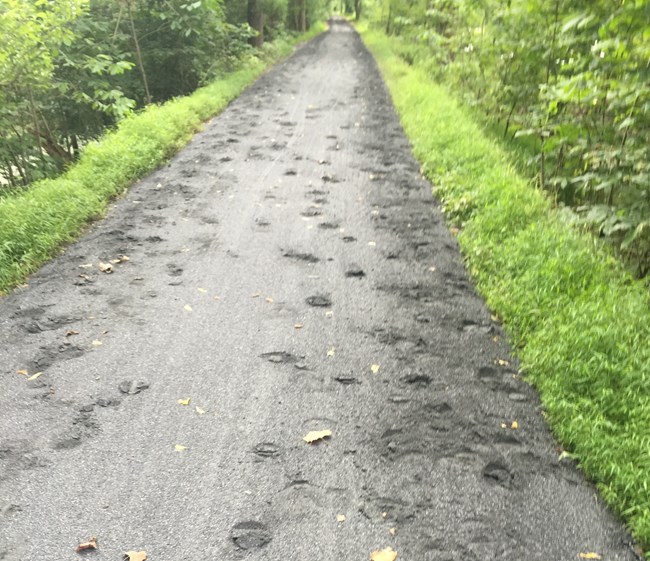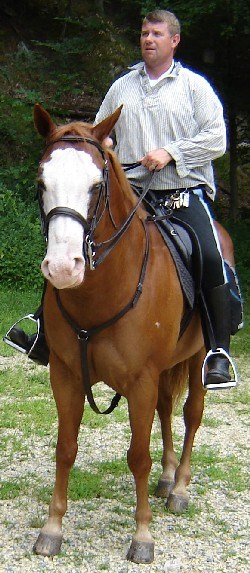
NPS Photo Equestrian Traffic Temporarily Prohibited between Little Tonoloway (mile 124.5) and Paw Paw (mile 155).
To read more about the resurfacing project, please visit our Towpath Resurfacing Project page. 
NPS Photo Horseback Riding on the C&O CanalHorseback riding is a unique way to enjoy the canal. Horses are not rented along the canal but there are opportunities for horse owners to enjoy the park. For the most up to date regulations on group overnight rides, please consult the Superintendent's Compendium. Section 2.16 specfically addresses Horses in the Park The following trails, routes or areas are designated for the use of horses:
Please follow these regulations:
Multi-day TripsLodgingCamping: Hiker-Biker and Drive-In campsites are located from Swains Lock to Cumberland. Lockhouses: The C&O Canal Trust's Canal Quarters program offers several lodging options in lockhouses along the canal. Reserve a lockhouse today! Canal Towns: Another great resource for learning more about what surrounding towns to the towpath have to offer is the Canal Towns Partnership website. Well WaterWell water is generally available in across the park from mid-April (around the 15th) to mid-November (around the 15th). Drive-In Campgrounds: Well water within the drive-in campgrounds is potable and treated with iodine - do NOT drink if you have any iodine allergies or if you are on medication for an overactive thyroid. In general, well water is clean and able to be used without additional treatment. However, as a general precaution for wells located in a flood zone, you are advised to boil or treat the water before use for your own protection. Hiker-Biker Campsites: Non-potable water is available in hiker-biker campsites. Please plan to filter, chemically treat, or boil the water before use for your own protection. The wells will remain in the hiker-biker campsites and, as long as visitors bring their own sanitization equipment, there will be a more reliable water source as handles will not be removed from these wells. Water availability is subject to change. Always bring plenty of water with you as a backup option. Please plan your trip accordingly. Overnight ParkingParking overnight is allowed in designated parking areas anywhere in the park without a permit. If you choose to park overnight in the Washington, DC or Montgomery County, MD sections of the park, you should submit your license plate number, description of your car, and when you expect to return to copermitsoffice@nps.gov. If you park outside of Washington, DC and Montgomery County, you do not need to submit this information. TrashThis is a trash free park; take all trash away. |
Last updated: January 8, 2026
